We’re on our way to Würzburg, at the northern tip of the Romantic Road, known for its wine and the former residence of the Würzburg prince-bishops, Unesco world cultural heritage site and one of the most important baroque palaces in Europe. The weather doesn’t look too bad but it’s only 15°C so we don’t know whether we will cycle or not. I am still feeling a little disgruntled after my poor night’s sleep.
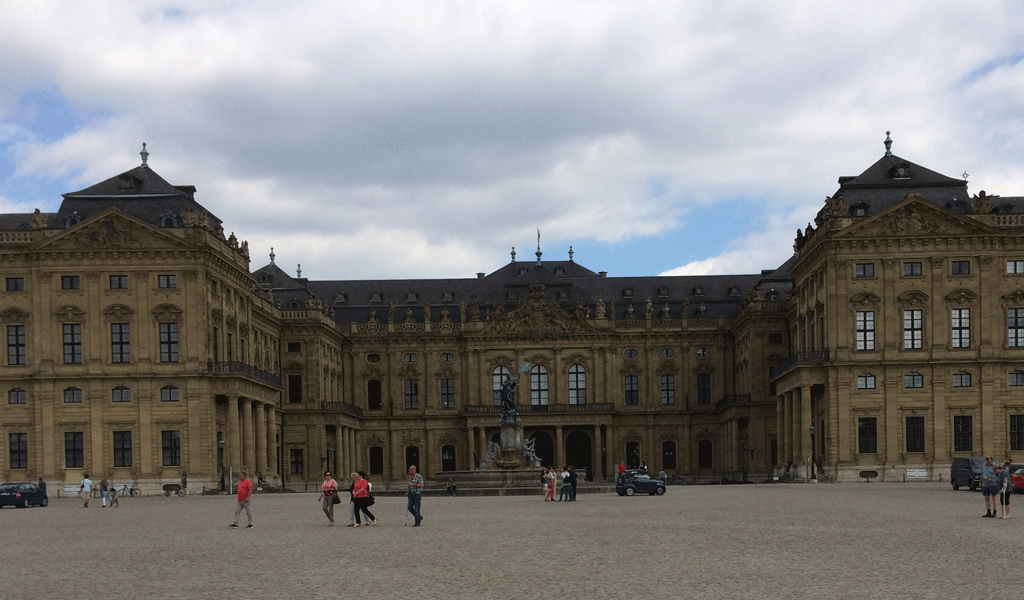
We ask the GPS to take us to the Residenz parkplatz and we’ll take it from there. We find it’s always best to visit popular monuments in the morning before they get too crowded. I suggest we take our photos of the façade after our visit because the sun is on the wrong side. We join the queue to visit the inside. It goes quickly and we are soon in the cloak room putting our phones and cameras in a locker as they are not allowed. We later see many people blatantly taking photos which we find surprising.
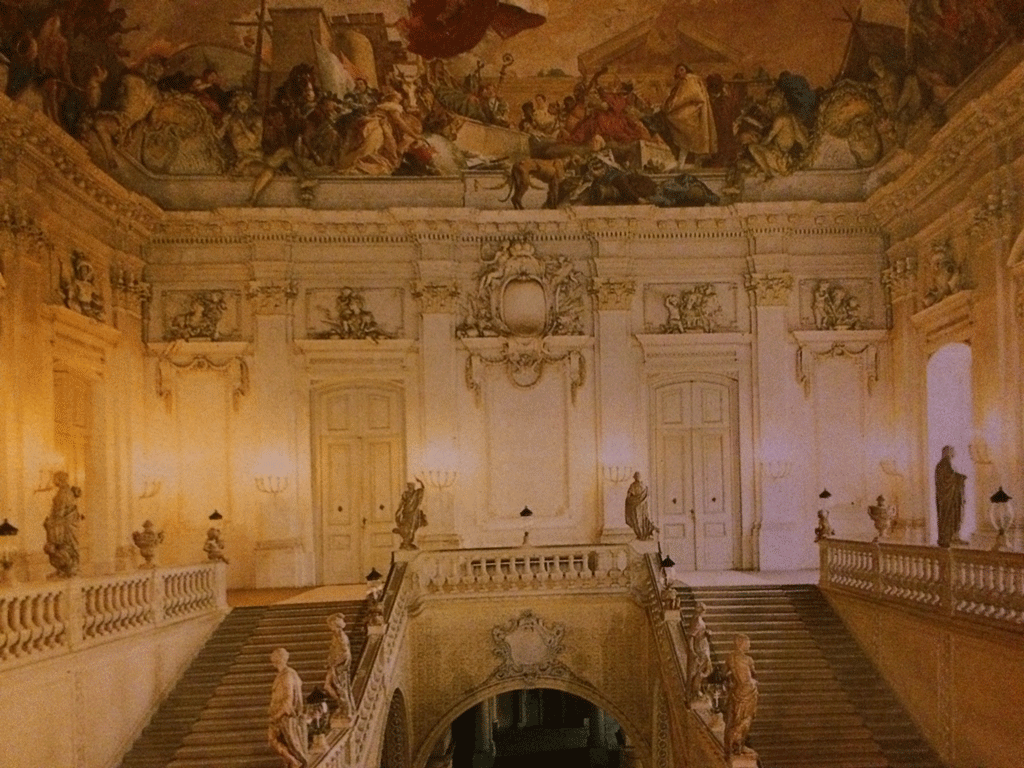
Admittedly, it is very frustrating not to be able to use our cameras. The Würzburg Residence is quite sumptuous, with the world’s largest fresco by Tiepolo, an amazing mirror cabinet and various other Baroque and rococo rooms. I’m including two photos from our guide book and hope the authors won’t mind.
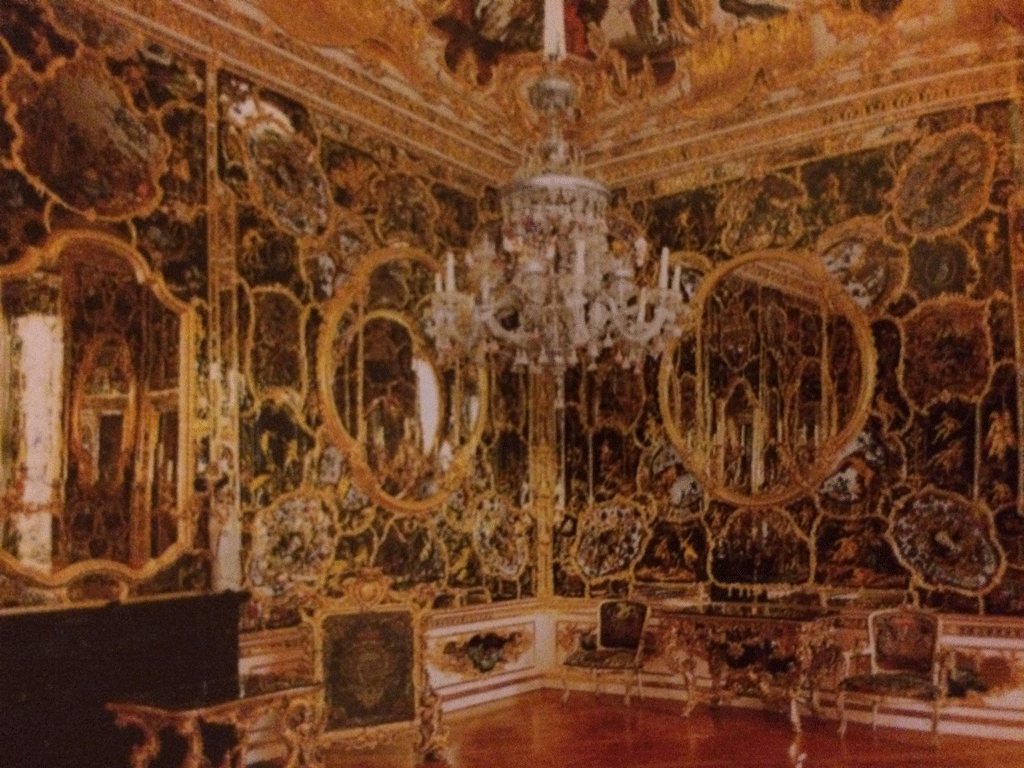
When we get to the end of the visit, Jean Michel says there are still some rooms we haven’t seen but we don’t know where there are. Then we see some people being let through a door which is closed after them. We ask the man who opened the door if we can go too. He explains that the rooms are only open during the week-ends to groups. However, if we wait for the next “house group”, we can go in with them. He goes off to find where they are up to and tells us they will be along in about 15 minutes.
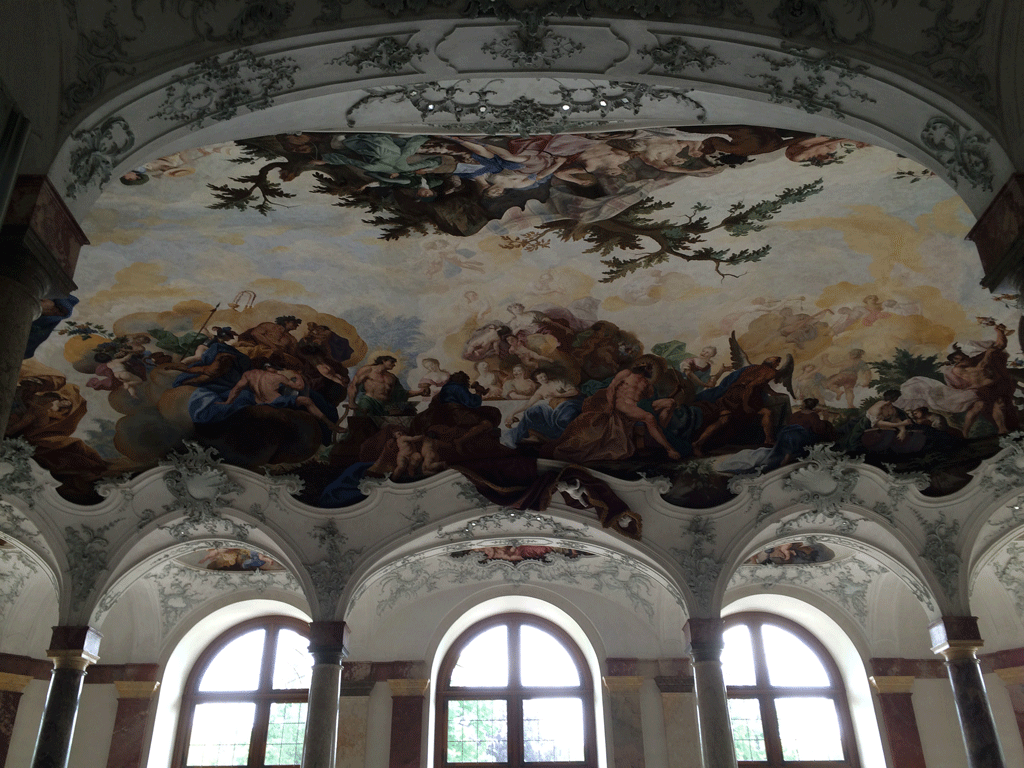
We join the group which has a German guide with a very loud, clear, grating voice and spends more than 5 minutes in each of the six rooms. We don’t understand a word, of course, but at least we have time to examine the rooms in detail. The cabinet of mirrors is especially intricate. We find it’s all terribly over the top but are glad to have seen it all.
We collect our belongings and I take a quick photo of the Gartensaal on the ground floor with its beautiful frescoes by Bossi. An official immediately calls out to me not to take photos. I can’t believe it. Not a word was said to the photographers upstairs!
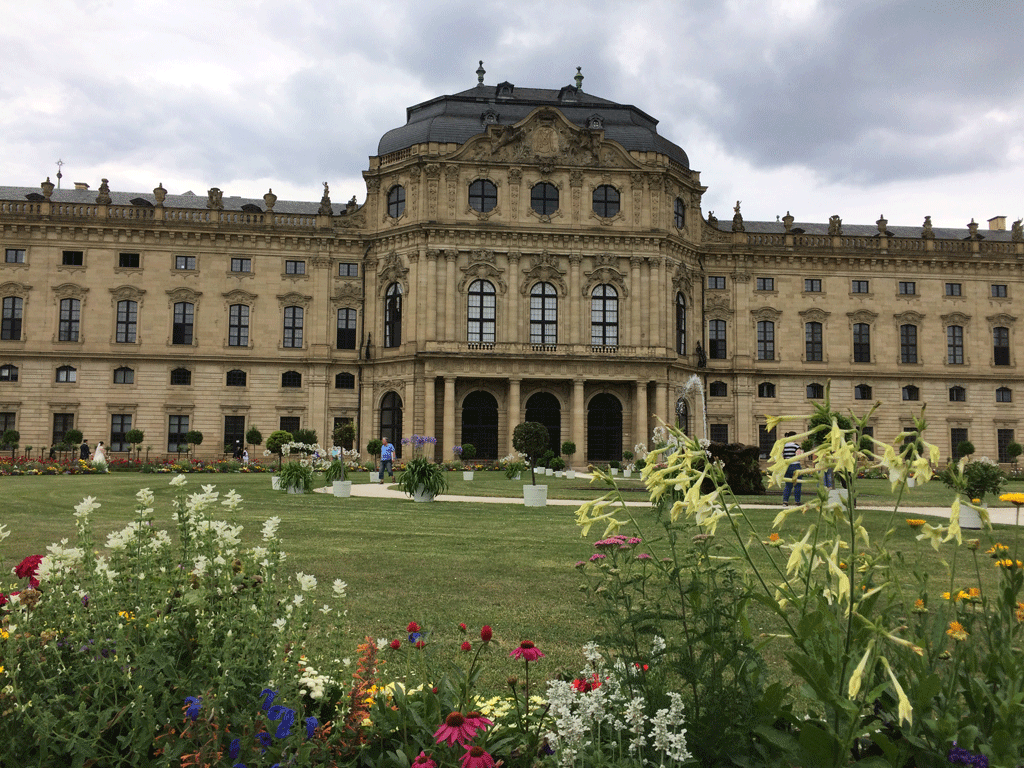
After a quick look around the gardens (there is a wedding in the baroque chapel so we can’t go in), we set off to visit the town.
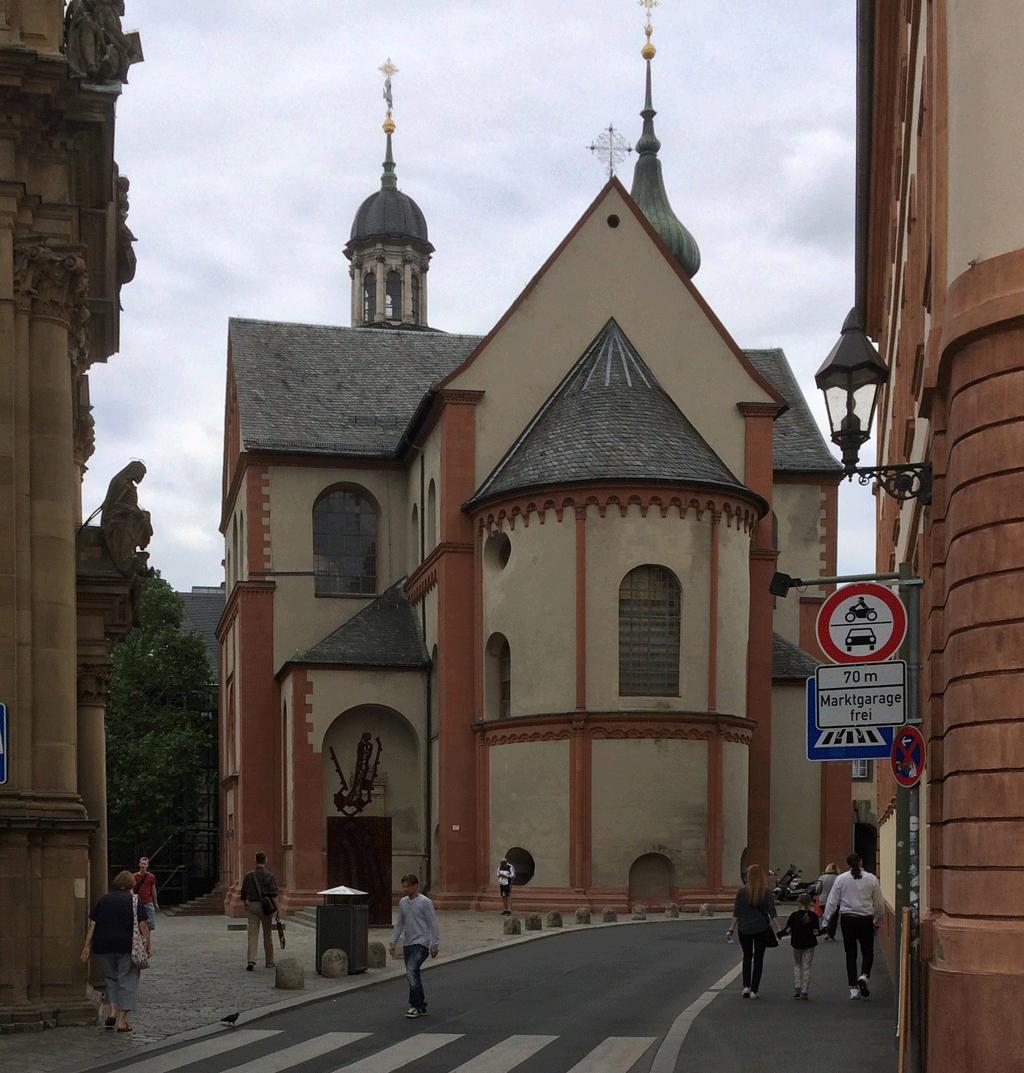
It’s quite disconcerting as there doesn’t seem to be a proper centre which can be explained by the fact that Würzburg was very severely bombed during the war.
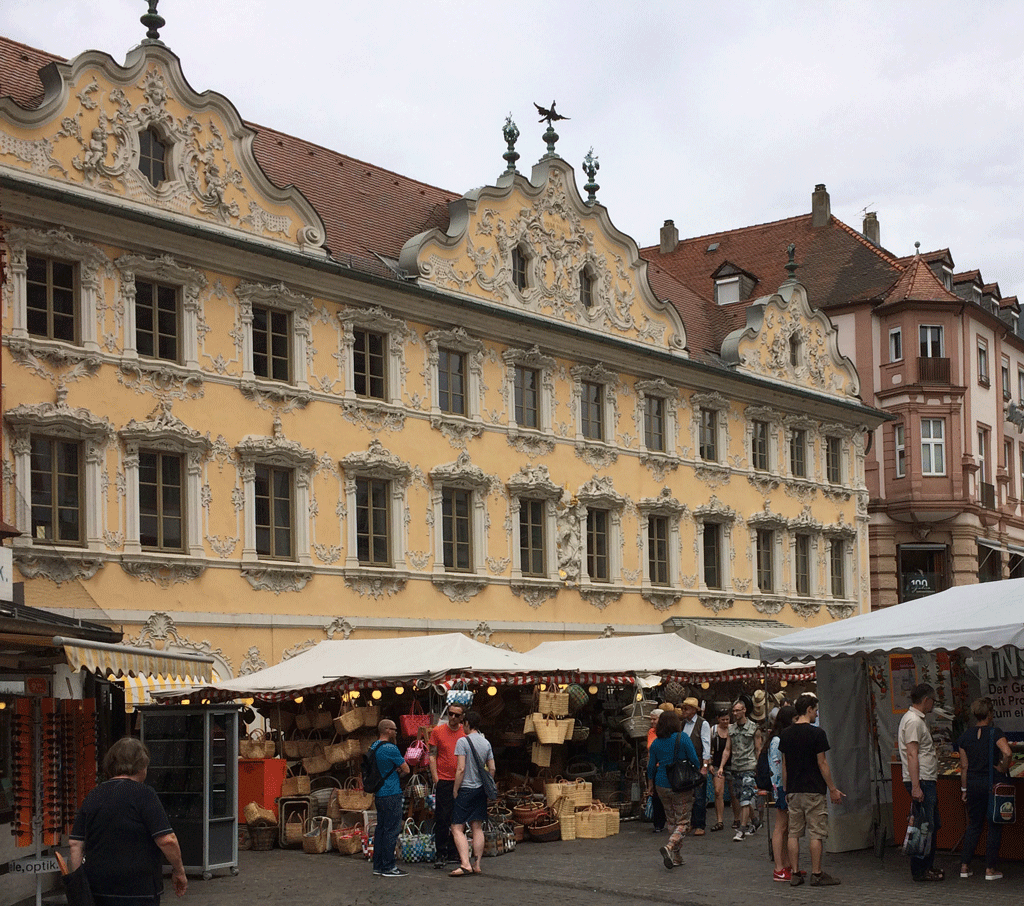
There are a few historical buildings that has been restored, such as the Dom Saint Killian, Falkenhaus and Marienkapelle, but otherwise, most of the buildings are modern.
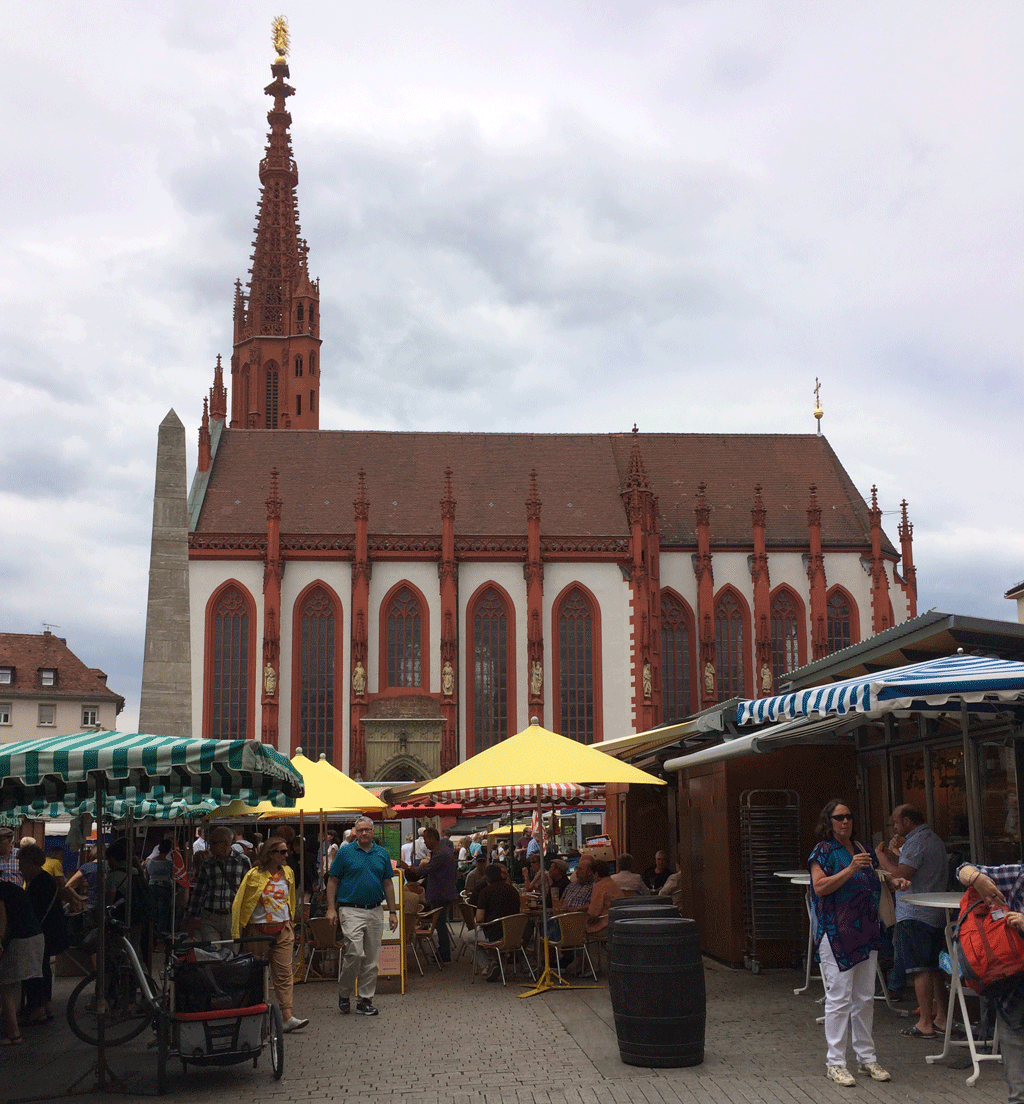
We arrive at Marktplatz which has lots of bratwurst (sausage) and chip stalls but we’d like a real meal. At Juliusspital a little further on, there is a restaurant in a large tree-shaded courtyard but it’s a little more sophisticated than what we are looking for. Just outside is a small shady Weingarten attached to a Weingut (cellar door), called Bürgerspital, which has homemade wild boar bratwurst so we have that with an excellent dry gewurztraminer. We are in the middle of a wine region, after all.
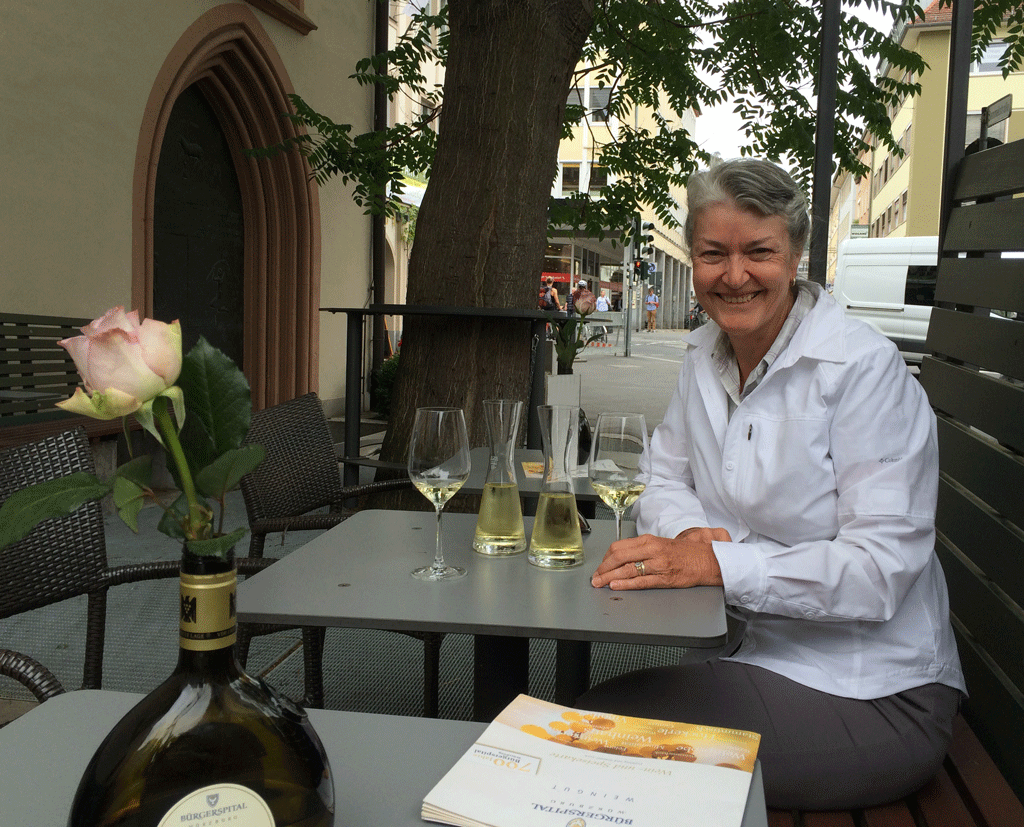
The gewurztraminer comes in a pretty bottle so we buy two to take home to Blois. We later learn that it is the typical bottle of the Würzburg area. As we go back through the marktplatz we see there is a wine tasting stall. We find out how it works – you pay 5 euro to rent a glass and can taste as many wines as you want. Among the whites, we try sylvaner, riesling, weissburgunder (pinot blanc), grauerbungunder (pinot griggio), muscatel and muller-thurgau, all German. Among the reds, we try saint-laurent and maréchal foch (Swiss) and lagrein (Italian from the south Tyrol). In case you are worrying, we do spit most of it out, but the fumes still go to your head.
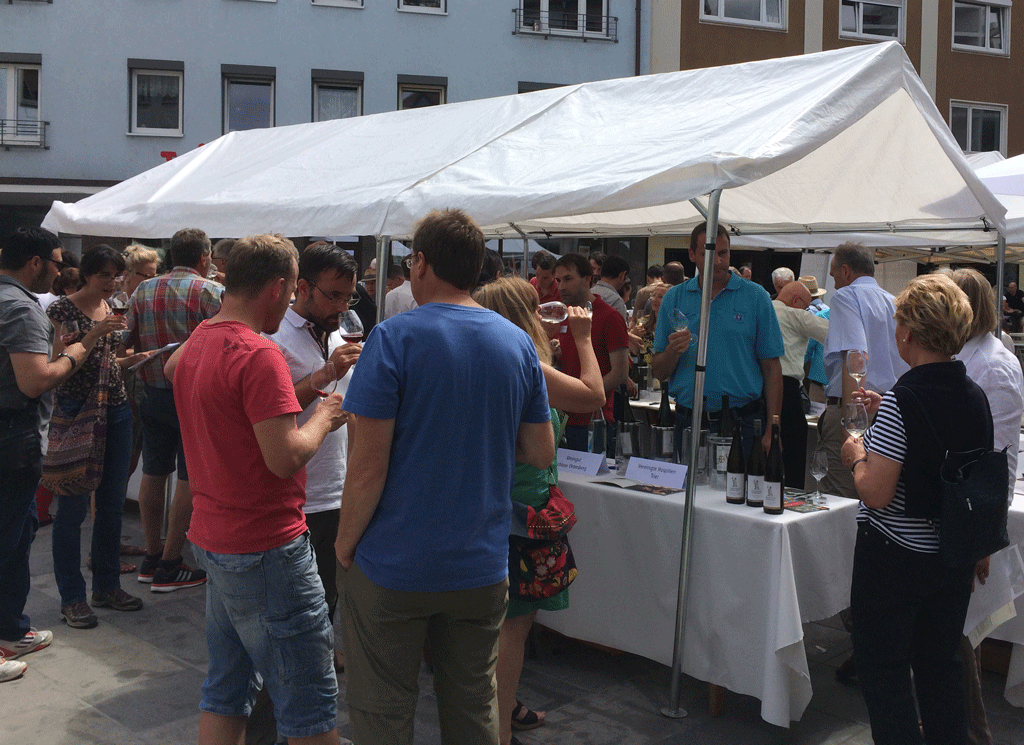
Enough wine-growers speak English or French for us to converse with them. No wine can be bought on-site. You can either order it on-line or visit the vineyard which makes the wine-tasting a very different event from those we have been to in France. When we give the glasses back, we are refunded 10 euro!
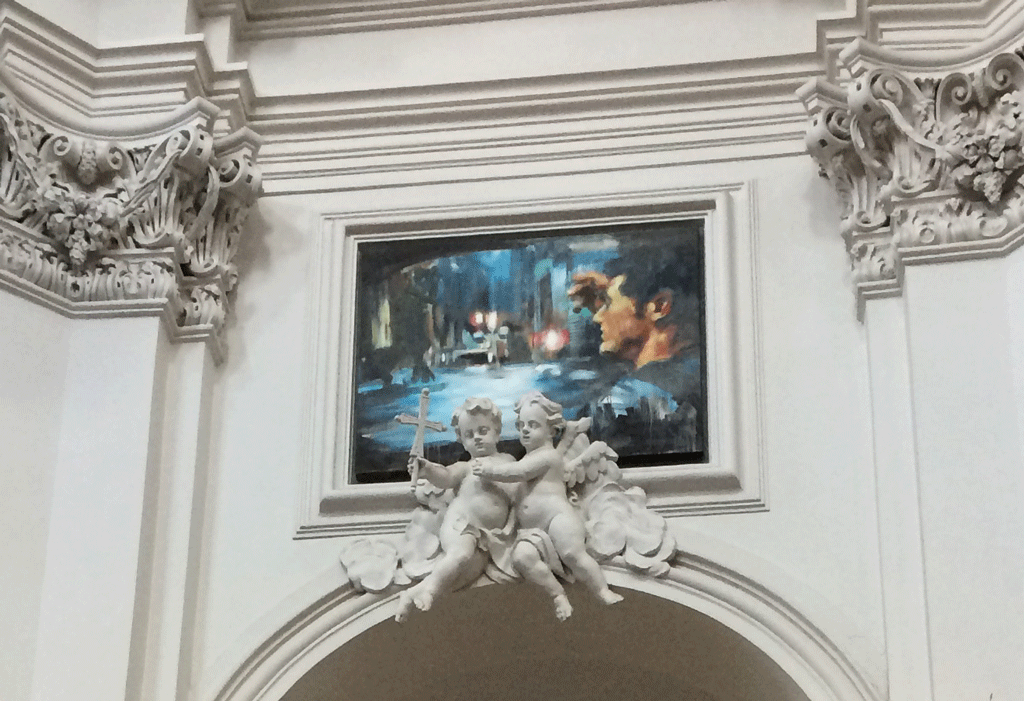
We visit a couple more baroque churches on the way back to the Residenz to visit the chapel now that the wedding is over. This time, there is no restriction on photos!
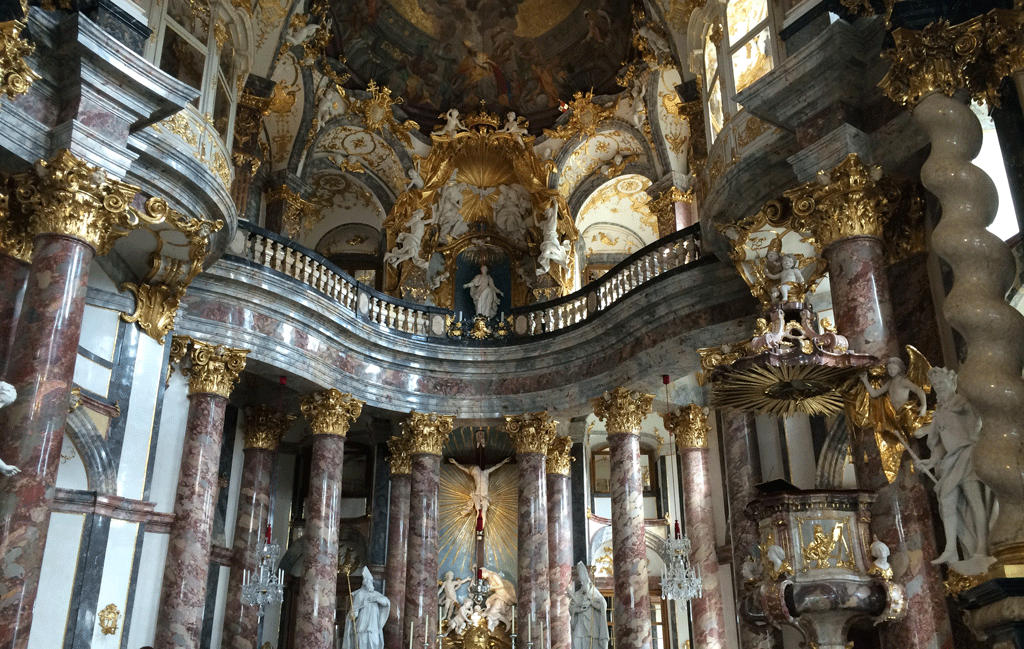
By now, the clouds have come over well and truly and the temperature is not high enough for comfortable cycling – or for taken a decent photo of the Residenz – so we drive back to Tauberbishofsheim where we now have a more comfortable room but I have to sit on the steps leading up to the second floor halfway down the corridor to use the Internet.
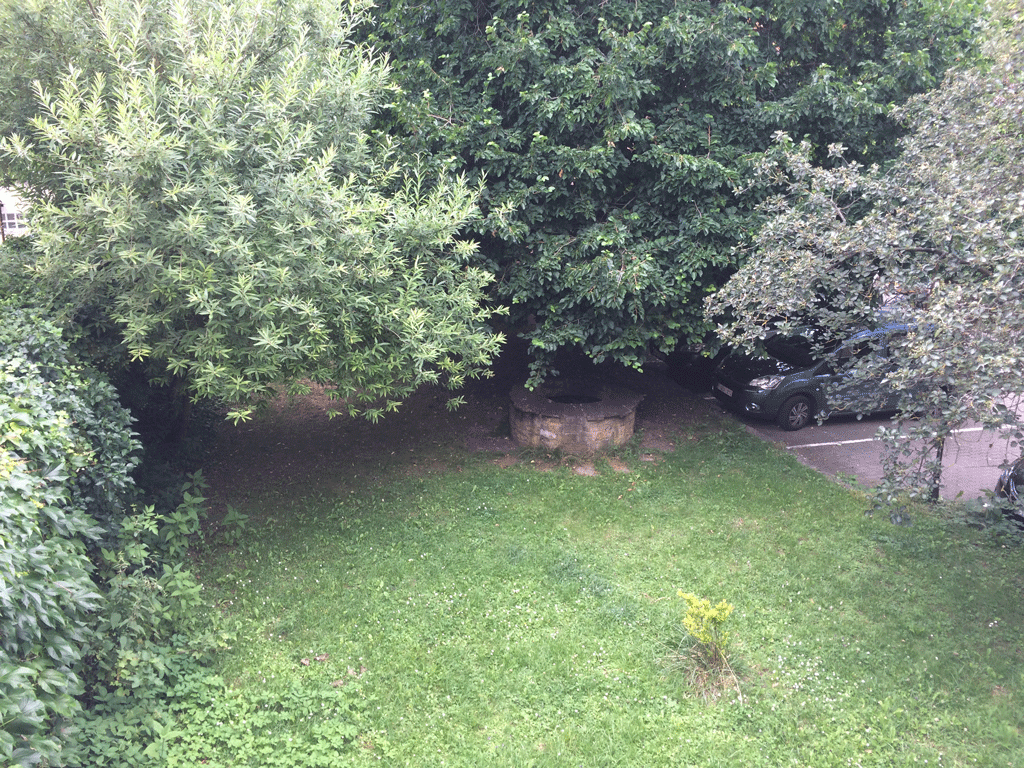
After a picnic dinner on our terrace we go back to our favourite eis café and the helpful waiter greets us from afar with a hearty “Bonsoir”! Tomorrow, we are getting back on our bikes, come what may.
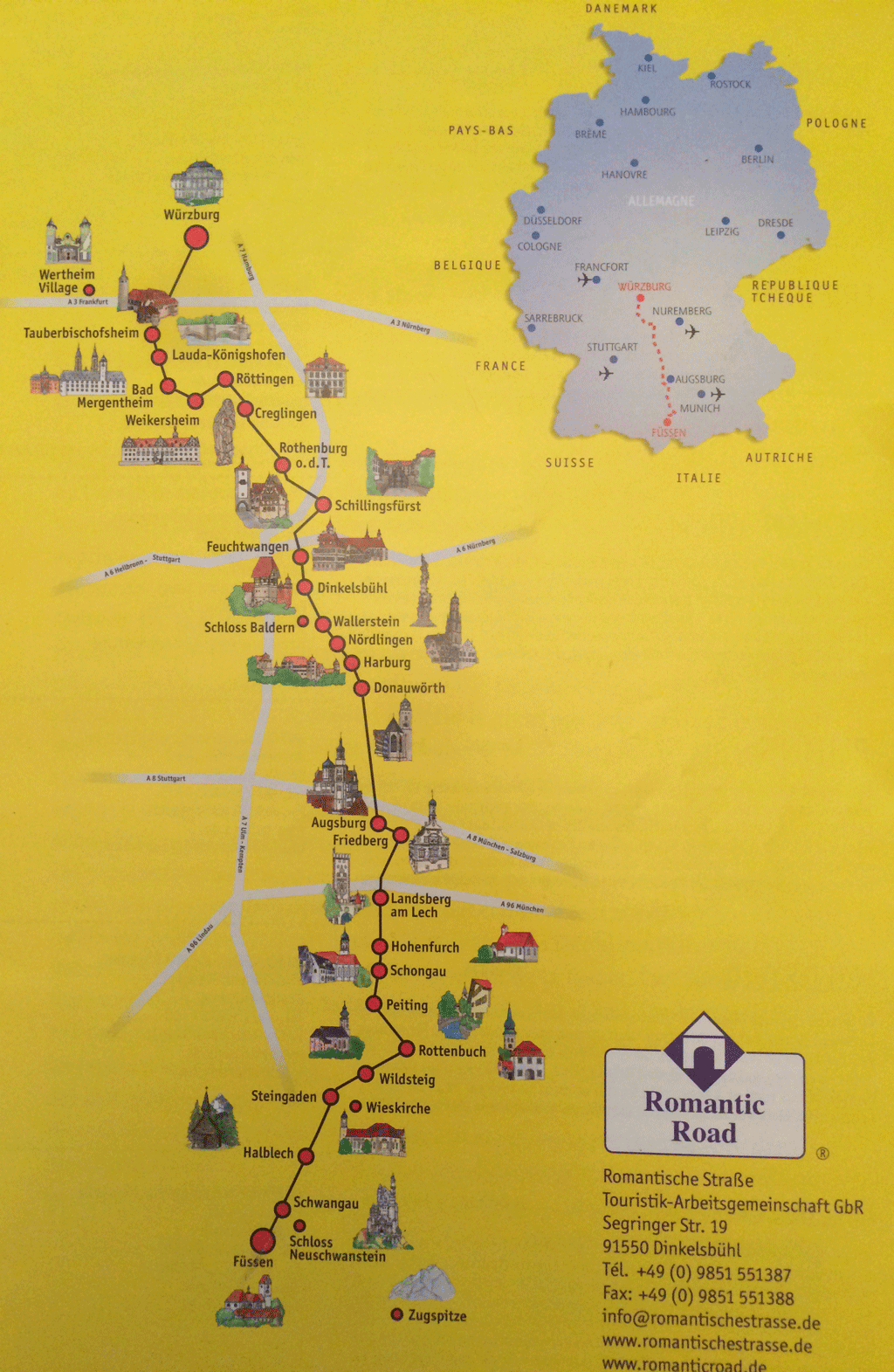





That chapel is the real beauty here. Gorgeous shots!
Our National Gallery has relaxed its restrictions on photography- unless there’s a notice, things are fair to take photos. The last time I was in there, I did photograph a Monet, however, not noticing on the sign until it was a no-photos painting.
Thank you.
You can take photos in most national exhibitions in France. It’s usually the private ones that have restrictions.
Würzburg seems to be a very nice place to visit and the Residenz reminds me of the palace in Vienna. You were lucky to be there when there was this wine tasting (and for FREE). In each wine country I am visiting, I am also doing such kind of tasting and always love it. Hope the weather is better now and that you could cycle more.
We, too, are great wine tasters! The weather has improved and we’re back on our bikes.